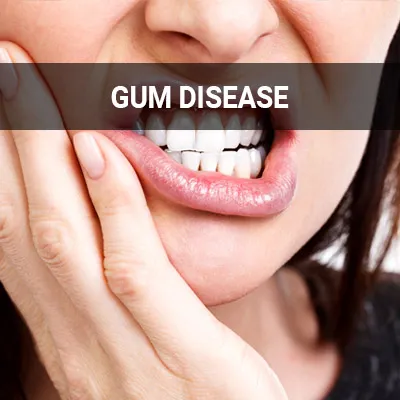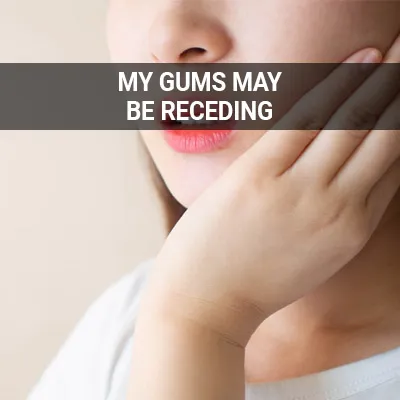Periodontics Houston, TX
Periodontics is a specialty field of dentistry that focuses on diagnosing, treating, and preventing periodontal disease. If left untreated, periodontal disease can have disastrous consequences. A periodontist is a dental specialist that works primarily in the diagnosis, prevention, and treatment of periodontal disease.
Periodontal treatment is available at Jones Family Dental in Houston and the surrounding area. Your gum health is a reflection of your overall health. Call us today at (281) 377-6651 to schedule an appointment or learn more about our services.
Why Periodontics
Though many patients may have periodontal needs that a general dentist can manage, it is essential for patients with signs of periodontal disease to see a periodontist. Periodontists are dentists that specialize in preventing, diagnosing, and treating periodontal disease. They also specialize in placing dental implants and treating oral inflammation.
In addition to completing four years of dental school, periodontists must undergo three additional years of training to become familiar with the best practices for diagnosing and treating periodontal disease and performing cosmetic periodontal procedures. A trained specialist can best manage moderate to severe periodontal disease, along with more complex cases.
“Periodontists are dentists that specialize in preventing, diagnosing, and treating periodontal disease.”
Hard Tissue/Osseous Procedures
An osseous procedure is a periodontal treatment that reduces or completely eliminates bacteria living in pockets underneath the gums. Healthline explains that during the procedure, a surgeon cuts back the patient's gums, removes the bacteria, and repairs damaged bone. Hard tissue procedures primarily curb the progression of gum disease but can also involve treating the enamel, dentin, and cementum.
In both hard tissue and osseous procedures, the primary goal is to remove bacteria from the pockets to prevent the spread of infection and disease. With advancements in modern dental technology, these procedures can be done using a laser that burns bacteria without coming close to the nerves, roots, or bone. Once the gums are reattached and sewn, they naturally heal and cling onto the tooth, slightly tighter than they were before.
“In both hard tissue and osseous procedures, the primary goal is to remove bacteria from the pockets to prevent the spread of infection and disease.”
Periodontal Disease
Gingivitis, the mildest form of periodontal disease, can cause the gums to bleed easily and become red and swollen. It is typically reversible with professional treatment and good oral hygiene. According to the American Academy of Periodontology, untreated gingivitis can easily develop into periodontitis.
Receding gums are common in the early stages of periodontitis, causing small pockets to form between the gums and the teeth. Moderate periodontal disease may also bring about bleeding and pain around the teeth, along with further gum recession. Teeth may also lose bone support and become loose. Finally, persons with advanced periodontal disease will see the connective tissue holding the teeth in place deteriorating, leading to tooth loss.
“According to the American Academy of Periodontology, untreated gingivitis can easily develop into periodontitis.”
Check out what others are saying about our dental services on Yelp: Periodontics in Houston, TX
Preventing Periodontal Disease
As mentioned above, if left untreated, periodontal disease can lead to gum recession and even tooth loss. Studies have also shown that gum disease may be linked to other systemic diseases, making it all the more important to maintain one's oral health. Fortunately, preventing periodontal disease is relatively easy.
The main way to prevent periodontal disease is to maintain a good oral hygiene routine. This involves brushing one's teeth at least twice a day, flossing nightly, and swishing with mouthwash. Those who are in at-risk groups should act accordingly and see a periodontist annually. A yearly comprehensive periodontal evaluation can assess one's gum health and ensure that patients are on the right track.
“The main way to prevent periodontal disease is to maintain a good oral hygiene routine.”
Questions Answered on This Page
Q. What are hard tissue and osseous procedures?
Q. What happens as periodontal disease progresses?
Q. How can I prevent periodontal disease?
Q. What happens during periodontal surgery?
People Also Ask
Q. Do I need a tooth extraction?
Q. What are common signs of gum disease?
Q. How is gum recession treated?
Periodontal Surgery
Patients with advanced periodontal disease may require periodontal surgery. This surgery involves removing the bacteria from beneath the gums, facilitating the cleaning of the teeth, reshaping the bones supporting the teeth, and helping prevent future gum damage. Depending on the patient's case, flap surgery, bone grafting, guided tissue regeneration, soft tissue grafts, or special proteins may be necessary.
In flap surgery, Jones Family Dental makes a small incision into the gum and lifts back a part of tissue to remove tartar and bacteria from the tooth and underneath the gums. In contrast, bone grafting repairs any damage done to the bone surrounding the tooth root. Similarly, guided tissue regeneration stimulates bone regrowth by placing a small piece of material between the gum tissue and the bone. Soft tissue grafts help restore lost tissue, while special proteins can encourage healthy bone and tissue regeneration.
“Depending on the patient’s case, flap surgery, bone grafting, guided tissue regeneration, soft tissue grafts, or special proteins may be necessary.”
Frequently Asked Questions About Periodontics
Q. Will my insurance cover periodontal treatment?
A. While the answer to this question varies on a case-by-case basis, most dental insurance policies tend to cover periodontal treatment. For the most accurate possible answer, speak to your carrier directly. Do not forget to bring your medical and dental benefit information and cards to your appointment.
Q. Can my kids develop periodontal disease?
A. It is rare for children to develop periodontal disease, though it does sometimes occur (particularly in adolescents). In any case, it is essential for patients of all ages to learn the importance of keeping a good oral hygiene routine to keep periodontal disease at bay in the future.
Q. Are there any consequences to missing teeth?
A. Yes, missing teeth are more than just an aesthetic issue. The teeth surrounding the gap may shift, and it may be more difficult for you to chew your food properly or even affect the way you speak. As such, it is crucial to address missing teeth as soon as possible.
Q. What can I expect from my first periodontal examination?
A. During your first periodontal examination, you will undergo a thorough physical examination of your mouth. Along with other things, Jones Family Dental will check the health of your gums, the status of your teeth, and the alignment of your bite. We may also perform certain imaging tests to make an accurate official diagnosis.
Q. What else can periodontists do?
A. While most periodontists spend most of their time diagnosing and treating gum disease, they can also perform various other procedures. These include placing dental implants when natural teeth cannot be saved, monitoring implants, correcting gum recession, and coordinating comprehensive dental care along with your dentist.
Periodontic Terminology
Call Us Today
Periodontal treatments can help prevent, curb, or treat periodontal disease and help you maintain a healthy oral cavity. Call us today at 281-377-6651 to schedule an appointment or learn more about our services.
Helpful Related Links
- American Dental Association (ADA). Glossary of Dental Clinical Terms. 2025
- American Academy of Cosmetic Dentistry® (AACD). Home Page. 2025
- WebMD. WebMD’s Oral Care Guide. 2025
About our business and website security
- Jones Family Dental was established in 2025.
- We accept the following payment methods: American Express, Cash, Check, Discover, MasterCard, and Visa
- We serve patients from the following counties: Harris County
- We serve patients from the following cities: Houston, Jersey Village, North Houston, Willowbrook, and Lakewood Forest
- National Provider Identifier Database (1700379195). View NPI Registry Information
- Norton Safe Web. View Details
- Trend Micro Site Safety Center. View Details
Back to top of Periodontics











